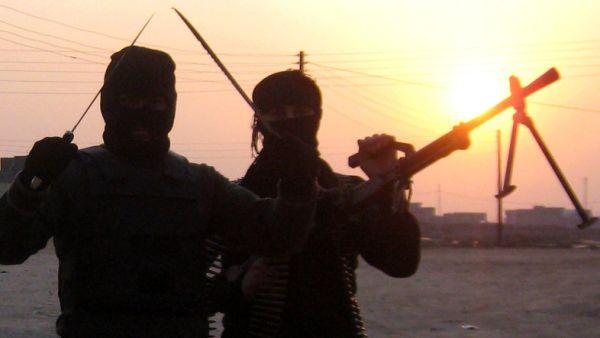The Daesh extremist group has reportedly captured up to 3,000 people in Iraq as they fled violence in the country's north, the UN Refugee Agency (UNHCR) confirmed Friday.
The people were on the run from fighting in Kirkuk province and seeking safety in the nearby city of the same name, a UN spokesman said.
Oil-rich Kirkuk province is divided between areas mainly controlled by the Kurdistan autonomous region and areas held by Daesh.
Separately, Kurdistan's Peshmerga military forces said Friday that 600 civilians had fled from Daesh-controlled areas and safely arrived in Kirkuk.
UNHCR, citing sources in Iraq, said earlier in the day that at least 12 of the 3,000 taken captive are thought to have been killed.
The Iraqi Observatory for Human Rights, a non-governmental group, put the number of captured civilians at 1,900, including children and women.
The Baghdad-based watchdog, citing witnesses, said they were abducted late Wednesday while they were trying to flee the Daesh-controlled district of Hawija.
The extremists also executed dozens of others, including burning alive six people, the Iraqi observatory said.
There was no official comment in Baghdad.
Government forces have been encircling Hawija for two weeks as part of a US-backed military campaign to drive Daesh from areas under its control in northern Iraq.
Hawija, located south-west of Kirkuk, has been under Daesh since June 2014.
Kirkuk is also at the centre of a territorial dispute between the Kurds and the central government in Baghdad.
A Peshmerga officer said on condition of anonymity that "We have taken in the 600 people and offered help to them."
"We heard from them that Daesh has detained hundreds of families and executed youth on charges of escape from the land of jihad [holy war] to the land of infidelity," he added, using an Arabic acronym for Islamic State.
The officer did not say exactly when the 600 arrived in Kirkuk, located around 250 kilometres north of the capital Baghdad.
In recent months, Daesh has suffered military setbacks and lost ground in Iraq.
By Ramadan Al-Fatash and Anne-Sophie Galli








